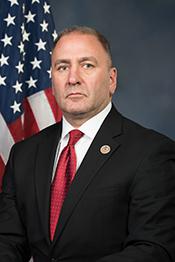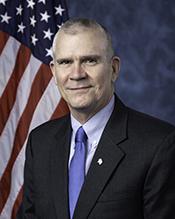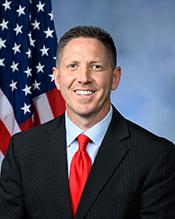0
0
0
To abolish the Environmental Protection Agency.
1/1/2025, 9:05 AM
Summary of Bill HR 10549
Bill 118 hr 10549, also known as the "To abolish the Environmental Protection Agency" bill, was introduced in the US Congress with the intention of dismantling the Environmental Protection Agency (EPA). The bill seeks to eliminate the EPA, which is a federal agency responsible for protecting human health and the environment by enforcing regulations on pollution, emissions, and other environmental issues.
If passed, this bill would effectively abolish the EPA and transfer its responsibilities to other federal agencies. Proponents of the bill argue that the EPA is unnecessary and burdensome, and that its functions can be carried out more efficiently by other government entities. They believe that the EPA's regulations stifle economic growth and hinder businesses.
Opponents of the bill, however, argue that the EPA plays a crucial role in safeguarding public health and the environment. They point to the EPA's role in enforcing clean air and water regulations, as well as its efforts to address climate change and protect endangered species. They argue that abolishing the EPA would have detrimental effects on the environment and public health. As of now, the bill is still in the early stages of the legislative process and it is unclear whether it will ultimately be passed into law. It has sparked significant debate and controversy among lawmakers and the public, with strong opinions on both sides of the issue.
If passed, this bill would effectively abolish the EPA and transfer its responsibilities to other federal agencies. Proponents of the bill argue that the EPA is unnecessary and burdensome, and that its functions can be carried out more efficiently by other government entities. They believe that the EPA's regulations stifle economic growth and hinder businesses.
Opponents of the bill, however, argue that the EPA plays a crucial role in safeguarding public health and the environment. They point to the EPA's role in enforcing clean air and water regulations, as well as its efforts to address climate change and protect endangered species. They argue that abolishing the EPA would have detrimental effects on the environment and public health. As of now, the bill is still in the early stages of the legislative process and it is unclear whether it will ultimately be passed into law. It has sparked significant debate and controversy among lawmakers and the public, with strong opinions on both sides of the issue.
Current Status of Bill HR 10549
Bill HR 10549 is currently in the status of Bill Introduced since December 20, 2024. Bill HR 10549 was introduced during Congress 118 and was introduced to the House on December 20, 2024. Bill HR 10549's most recent activity was Referred to the Committee on Energy and Commerce, and in addition to the Committees on Agriculture, Transportation and Infrastructure, and Science, Space, and Technology, for a period to be subsequently determined by the Speaker, in each case for consideration of such provisions as fall within the jurisdiction of the committee concerned. as of December 20, 2024
Bipartisan Support of Bill HR 10549
Total Number of Sponsors
2Democrat Sponsors
0Republican Sponsors
2Unaffiliated Sponsors
0Total Number of Cosponsors
10Democrat Cosponsors
0Republican Cosponsors
10Unaffiliated Cosponsors
0Policy Area and Potential Impact of Bill HR 10549
Primary Policy Focus
Alternate Title(s) of Bill HR 10549
To abolish the Environmental Protection Agency.
To abolish the Environmental Protection Agency.
Comments

Camilo Horn
476
11 months ago
I think this bill to get rid of the EPA is a good idea. It will save money and cut red tape. This is what we need to make America great again!
Sponsors and Cosponsors of HR 10549
Latest Bills
Providing amounts for the expenses of the Committee on Ethics in the One Hundred Nineteenth Congress.
Bill HRES 131December 12, 2025
Providing for congressional disapproval under chapter 8 of title 5, United States Code, of the rule submitted by the Bureau of Land Management relating to "Central Yukon Record of Decision and Approved Resource Management Plan".
Bill HJRES 106December 12, 2025
Expressing the sense of the House of Representatives in condemning the Government of the People's Republic of China for its harassment and efforts to intimidate American citizens and other individuals on United States soil with the goal of suppressing speech and narratives the People's Republic of China finds unwelcome.
Bill HRES 130December 12, 2025
Providing for congressional disapproval under chapter 8 of title 5, United States Code, of the rule submitted by the Bureau of Land Management relating to "North Dakota Field Office Record of Decision and Approved Resource Management Plan".
Bill HJRES 105December 12, 2025
Providing for congressional disapproval under chapter 8 of title 5, United States Code, of the rule submitted by the Bureau of Land Management relating to "Miles City Field Office Record of Decision and Approved Resource Management Plan Amendment".
Bill HJRES 104December 12, 2025
Providing amounts for the expenses of the Select Committee on the Strategic Competition Between the United States and the Chinese Communist Party in the One Hundred Nineteenth Congress.
Bill HRES 104December 12, 2025
Critical Access for Veterans Care Act
Bill S 1868December 12, 2025
OATH Act of 2025
Bill S 1665December 12, 2025
A bill to extend the authority for modifications to the Second Division Memorial in the District of Columbia.
Bill S 1353December 12, 2025
Saving Our Veterans Lives Act of 2025
Bill S 926December 12, 2025





